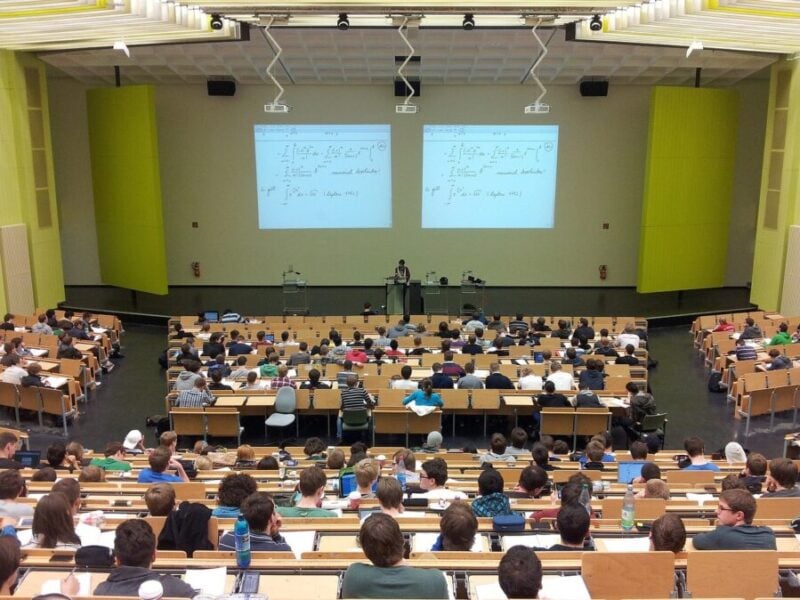
AI in Pakistani Classrooms: ChatGPT Enhances Student Achievement Amid Resource Limitations
A pioneering study investigating the interaction between Pakistani university students and artificial intelligence reveals that ChatGPT, a sophisticated language model created by OpenAI, substantially improves academic performance when utilized in educational environments. Released in Scientific Reports by researchers Muhammad Azeem Ashraf, Jan Alam, and Usama Kalim, the research sheds light on how AI instruments are transforming educational access, student involvement, and learning results—particularly in systems facing resource constraints.
Entitled “Investigating the Factors and Effects of ChatGPT Usage in Higher Education: Insights from Pakistan,” this research is one of the first of its nature to associate the regular use of ChatGPT with measurable academic gains in a developing nation.
Reasons for Pakistani Students’ Embrace of ChatGPT
The researchers conducted a survey with 352 university students from November 2023 to January 2024 to uncover the psychological and situational elements motivating students to adopt ChatGPT for educational purposes. Two primary factors surfaced:
– Habit Formation: Students who regularly include ChatGPT in their study habits are more inclined to depend on it for academic assistance.
– Hedonic Motivation: The pleasure and satisfaction gained from interacting with the AI tool encourage ongoing usage.
These results highlight that students do not simply choose ChatGPT because it is available—they embrace it because it proves to be both useful and enjoyable. In a nation where traditional academic resources are often hindered by infrastructure, financial, or faculty limitations, solutions like ChatGPT fulfill an essential need.
“Research indicates that higher education institutions in Pakistan face challenges such as resource shortages, high student-to-faculty ratios, and restricted access to quality materials,” the study points out. By serving as a virtual tutor and collaborative learning partner, ChatGPT becomes a readily available, round-the-clock educational resource.
Improved Academic Results Across Demographics
A significant finding of the study is the consistent academic enhancement observed among students who frequently engage with ChatGPT. Importantly, this increase in academic performance spans various demographic groups, including gender, age, geographical location (urban vs. rural), and type of institution.
The findings indicate that ChatGPT fosters academic success by:
– Promoting collaborative and self-directed study habits
– Aiding in the understanding of complex materials through simplified explanations
– Encouraging critical thinking by posing questions and guiding students in problem-solving
– Offering feedback loops that enable continuous learning and development
For students grappling with traditional rote learning methods—a widespread concern in numerous South Asian education systems—ChatGPT presents a revitalizing, inquiry-focused alternative. It helps cultivate curiosity, inspires involvement, and supports a transition towards deeper conceptual understanding.
Beyond Conventional Learning Settings
More than a mere digital assistant, ChatGPT revolutionizes how students engage with educational material. It empowers learners to navigate their own academic paths. The study identified that students utilize it for a range of tasks, including answering inquiries, summarizing content, clarifying challenging concepts, and even assisting in brainstorming for essays or projects.
This capability holds even greater significance in Pakistan’s scenario. With faculty often overextended and educational resources challenging to obtain, tools that provide on-demand support can be transformative.
“ChatGPT enhances comprehension of intricate subjects by posing thought-provoking questions and offering customized support,” the researchers stated. Furthermore, its accessibility beyond regular academic hours grants students greater flexibility, enabling them to learn at their convenience—an essential feature for students in remote areas or those balancing part-time employment.
Future Directions for Educational Practices
While the advantages are evident, the study also advises prudence. Given that models like ChatGPT create content by predicting text patterns, they are prone to phenomena referred to as “hallucinations”—the generation of erroneous or misleading information. Thus, fostering students’ critical analysis and verification skills is crucial.
To effectively incorporate ChatGPT and similar AI tools into mainstream education, the researchers suggest:
– Implementing digital literacy programs to recognize the limitations of AI
– Revising academic policies to reflect responsible AI application
– Training faculty to effectively integrate AI into their teaching practices
– Establishing ethical guidelines to avoid over-dependence or misuse
Educators and policymakers need to maintain a delicate balance between innovation and academic integrity. Rather than replacing teachers, ChatGPT can act as a supportive resource, allowing educators to concentrate on higher-level learning objectives such as analysis, synthesis, and mentorship.
Bridging the Educational Gap
One of the most significant conclusions from the study is that ChatGPT can democratize education in Pakistan, providing equal access to quality educational resources irrespective of a student’s geographical location or socioeconomic status.
By promoting inquiry, engagement, and independence, the AI tool not only addresses the immediate requirements of Pakistani university students but also indicates a broader, more inclusive future for global education.
With careful implementation, comprehensive digital literacy initiatives, and policies that address ethical dilemmas, ChatGPT and similar AI technologies may not only revolutionize education—but could also help to equalize opportunities.
As advancements in AI continue to influence various sectors, this groundbreaking study acts as a timely reminder.